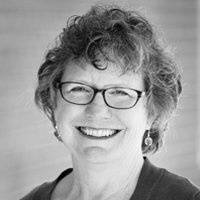Communication access realtime translation (cart) is provided in order to facilitate communication accessibility and may not be totally verbatim. The consumer should check with the moderator for any clarifications of the material.
This text-based course is a written transcript of the event, “Is This Ethical? Use of an ethical decision-making model to address ethical issues in the workplace” presented by Elizabeth Power-deFur on December 19, 2011.
>> Amy Natho: Okay. So let's go ahead and get started. I would like to welcome you to the SpeechPathology.com e‑learning expert seminar entitled, “Is This Ethical? Use of an ethical decision‑making model to address ethical issues in the workplace” presented by Lissa Power-deFur. Dr. Power‑deFur is a Professor of Communication Sciences and Disorders at Longwood University where she currently directs the graduate program and supervises clinical services. Among the classes she teaches are ethics and professional issues. She is a regular ASHA volunteer and has previously served as a member of the ASHA Board of Ethics. So Lissa, thank you so much for being here today. We're very glad to have you.
>> Dr. Power‑deFur: Thank you, Amy. I'm glad to be back with SpeechPathology.com, again. I'm looking at my picture and I think that represents a different season since I'm wearing a sleeveless shirt. It is a little colder now. I'm glad to be here talking about ethics. One of the great honors for me was to serve as a member of the Board of Ethics, which is a three‑year term I did in the middle of the 2000s. It was a tremendous learning experience for me and then I've incorporated a lot of what I learned from that into the graduate class I teach on Ethics and Professional Behavior. In looking through the list of participants, I recognize a couple of names. It is kind of nice to be talking to folks I know, even if it is through a virtual means. But what I hope you'll leave with today is a refresher. Everyone of you is an ASHA certified SLP I'm sure, so you know about the Code of Ethics, you had it in a grad program and you reviewed the ethics code as it came out with the most recent revision. I'm just going to update you on things. I'm going to talk about an ethical decision‑making model, go back through the four Principles of Ethics, do a little contrast between ethical and legal policy requirements and then the last portion of it I'm going give you some alternatives and some ethical issues, and give you some opportunity to think about alternatives and ways you can approach things. I kind of like this quote. It is attributed to Mark Twain. Sometimes you wonder if it really is: “Always do what is right. That will satisfy most people and astonish the rest.” (Mark Twain)

